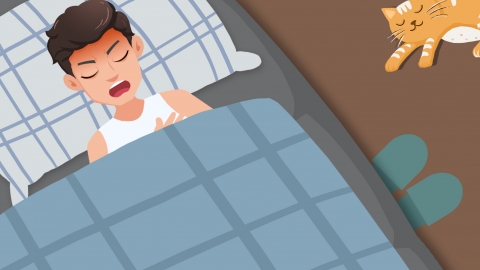What are the sequelae of tuberculous meningitis?
Generally, if tuberculous meningitis is not treated promptly or the condition is severe, it may result in various sequelae, mainly including neurological dysfunction, cognitive decline, limb movement abnormalities, epileptic seizures, and vision or hearing impairments. A detailed explanation is as follows:

1. Neurological Dysfunction: Some patients may develop facial nerve palsy, presenting as facial droop, incomplete eyelid closure, drooling, and similar symptoms, caused by inflammation damaging the facial nerves. In addition, swallowing difficulties and hoarseness may occur, leading to choking during meals and increasing the risk of aspiration.
2. Cognitive Decline: Patients may experience memory loss, difficulty recalling recent events, trouble concentrating, and an inability to focus on a single activity for an extended period. Some patients may also exhibit decreased comprehension and calculation abilities, making it difficult to learn new information or complete simple household tasks.
3. Limb Movement Abnormalities: The inflammation may damage nerves or brain tissue controlling limb movement, resulting in reduced muscle strength, manifested as limb weakness or the inability to stand or walk normally. Some patients may experience limb spasms, stiffness, reduced joint range of motion, or even limb paralysis.
4. Epileptic Seizures: Brain tissue damaged by inflammation may form abnormal electrical discharge foci, triggering epilepsy. During a seizure, patients may experience loss of consciousness, limb convulsions, frothing at the mouth, and other symptoms. The frequency and severity of seizures vary among individuals. Frequent seizures can cause further brain damage and increase the risk of accidental injuries.
5. Vision or Hearing Impairment: If the optic nerve is affected by inflammation, it may lead to vision loss, and severe cases can result in blindness. If the auditory nerve is involved, it may cause hearing loss or deafness. These impairments are often irreversible and significantly affect the patient's ability to perceive external information.
Patients experiencing sequelae are advised to undergo rehabilitation training under a physician's guidance, such as limb function exercises, speech therapy, and cognitive rehabilitation, to gradually improve physical function. Maintaining regular sleep patterns and a balanced diet while avoiding excessive fatigue is also important. Family members should provide sufficient companionship and support to help the patient better adapt to daily life.






